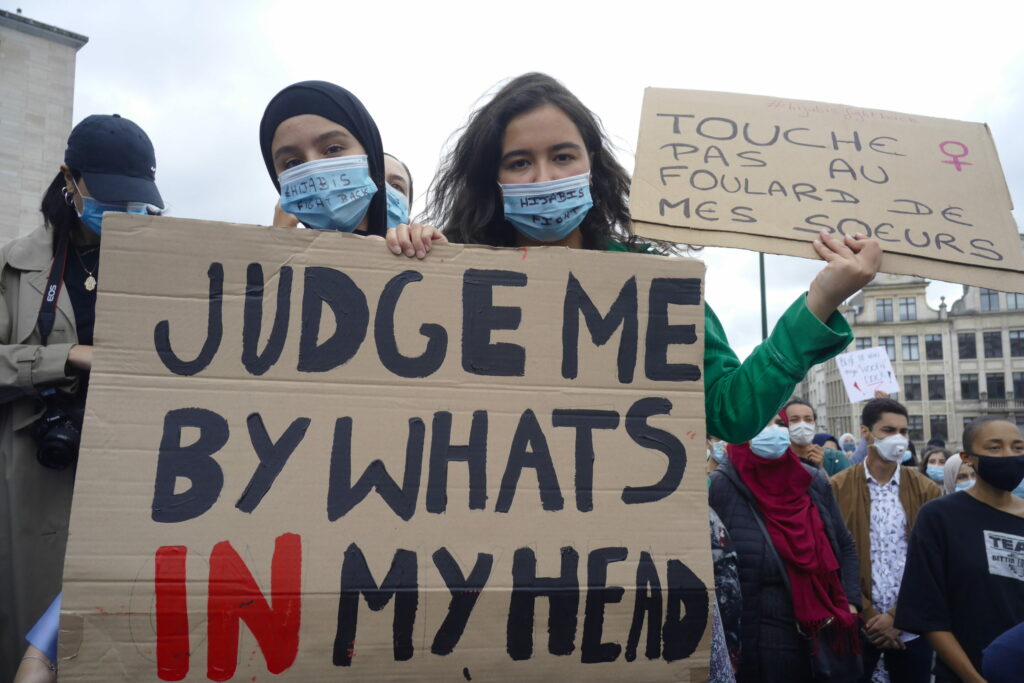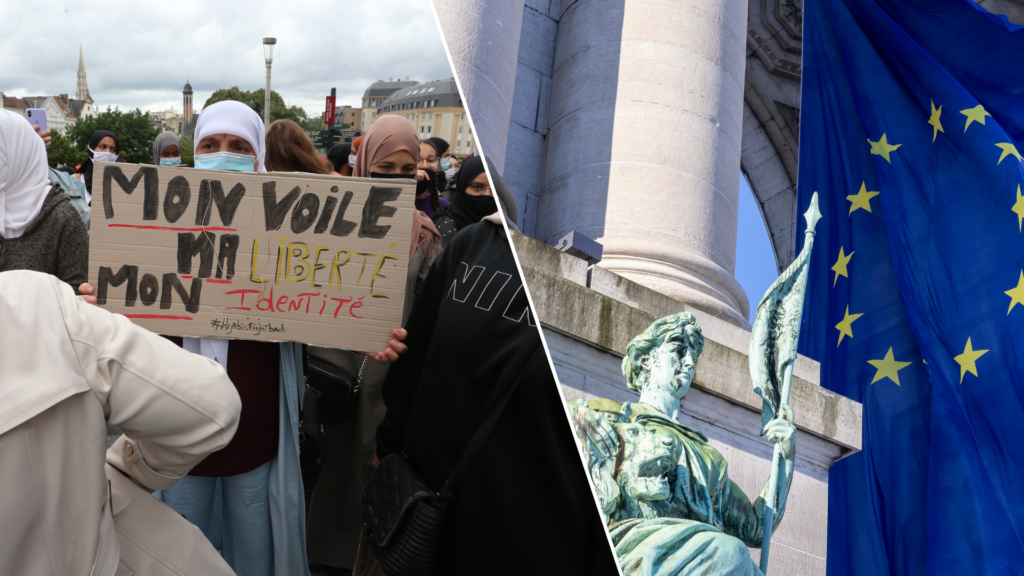Almost one in two Muslims in the European Union experience discrimination in their everyday life, a report published last week by the European Union for Fundamental Rights (FRA) revealed. In Belgium, this is particularly evident in the employment and housing sector.
The study, based on data from Muslim immigrants or descendants of immigrants in 13 countries, showed an increase in anti-Muslim racism (47%) compared to 2016 (39%).
"We are witnessing a worrying surge in racism and discrimination against Muslims in Europe. This is fuelled by conflicts in the Middle East and made worse by the dehumanising anti-Muslim rhetoric we see across the continent," said the FRA director, Sirpa Rautio, in a press release.
While the report’s data is from 2022, the findings remain relevant in light of recent reported spikes in anti-Mulsim racism across the EU since the escalation of the ongoing war in Gaza, the FRA spokesperson, Nicole Romain, told The Brussels Times. "The phenomena are pervasive and persistent. The scope is overwhelming," Romain added.
Muslim respondents most often faced discrimination on the grounds of their religion, ethnic or immigrant background, and skin colour, according to the report.
Muslims reported facing discriminatory behaviour particularly when looking for work (39%), with Belgium having the second-highest (44%) number of reports of racial discrimination within the year prior to the survey.
Similarly, around a third of Muslims (35%) reported discriminatory issues when trying to rent or buy a home within the last 5 years prior to the survey. Belgium was the country with the third-highest incidents (43%), following Austria (50%) and Germany (54%).
Notably, 49% of participants reported discriminatory profiling from the authorities within the year before the study. Police stops were experienced more frequently in Greece (89%), Belgium (49%), Italy and Spain (41%).

A demonstration against the ban on wearing religious symbols and attire in education, in Brussels in 2020. Credit: Belga/Ophelie Delarouzee
Around half of the Muslims in Europe who were victims of racist violence were psychologically affected by the experience, with 22% of victims experiencing fear over leaving their homes. Over a third of the victims said they suffered injuries from racist violence, with 10% reporting they required medical help or were hospitalised.
The study further found that the majority of Muslims did not report experiences of racist harassment (87%). Almost half believed that nothing would happen if they went to the authorities.
The FRA calls on the EU and Member States to increase the efforts to address the findings. "While this situation for Muslims persists, people remain reluctant to speak out about discrimination. But racism should never go unnoticed or unanswered [...] everyone is entitled to live a life free from discrimination and racism." Rautio concluded.
Related News
- Nearly one in two young people have experienced prejudice and discrimination, study finds
- European Court to rule on Flemish headscarf ban in schools
- European Court of Human Rights dismisses Antwerp burkini ban case
The FRA report is based on data collected from 9,604 people between October 2021 and September 2022. It surveyed participants who self-identified as Muslim in 13 different countries: Belgium, Austria, Denmark, Finland, France, Germany, Greece, Ireland, Italy, Luxembourg, the Netherlands, Spain, and Sweden.
In Belgium, 504 people participated in the study. They were either born in, or had parents who were born in, North Africa or in African countries south of the Sahara. A quota sample was utilised which corresponded with the target population’s characteristics.
The European Union for Fundamental Rights is an independent centre for the promotion and protection of human rights within the EU. It was founded by the EU in 2007. It is financed through EU funds allocated on an annual basis.

